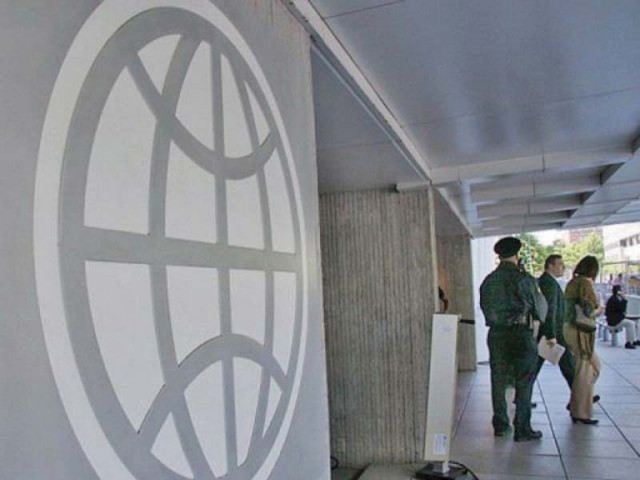Pakistan's corporate tax rate third highest in world
Despite small tax base, government continues to give incentives, worsening overall investment climate

The administrative burden of tax compliance is hardest in Pakistan where firms have to make 47 payments and spend 594 hours (or 74 man days per year) dealing with tax regulations. PHOTO: FILE
Pakistan’s corporate income tax rate – tax on profits – is the third highest in the world, according to a December-2015 World Bank report titled ‘Toward a More Business Friendly Tax Regime: Key Challenges in South Asia’.
“Corporate tax rates in South Asia are higher than those in other developing regions,” the report says citing ‘narrow tax base’ as one of the main reasons for the region’s ‘relatively higher tax rate’.
Rate of capital gains tax in Pakistan ‘too high’
Despite a small tax base, the government continues to give tax incentives to privileged firms. While a select few may benefit from these concessions, they worsen the overall investment climate and put a disproportionate pressure on a narrow range of taxpayers, the report finds.

Islamabad has the lowest tax-to-GDP ratio in the world. According to the State Bank of Pakistan (SBP), the country’s tax-to-GDP ratio has remained in the range of 8.5% to 9.5% over the last 10 years.
Only 1.2 million (0.7%) individuals and firms file income tax returns in Pakistan, a country of 180 million, the World Bank report says. Of those who file tax returns, half are corporate income tax filers, it adds. Some 118,000 entities are enrolled in the sales tax system but only 15,000 actually pay any tax, it says.
On the other hand, the total cost of all tax concessions (direct and indirect taxes, customs and excise duties) amounted to about Rs477.1 billion or $4.7 billion in fiscal year 2014, the report says – this is about 2% of the country’s GDP. However, the report says there is little evidence that tax incentives in South Asia address market failures.
Authored by Anna Reva, operations officer at the World Bank’s Poverty Reduction and Equity Department, the policy paper discusses competitiveness-related issues surrounding the design and administration of corporate and value added and sales taxes in four South Asian countries – Bangladesh, India, Pakistan, and Sri Lanka.
Corruption, tax evasion on the rise: FBR official
According to the report, the review of tax regulations in the region shows several commonalities, such as widespread use of tax incentives to support selected industries, types of firms, and industrial locations; many exemptions from value-added taxes, practice of levying multiple indirect taxes on the same base and high costs of tax compliance for businesses.
The average corporate income tax rate for these South Asian countries is 32% compared to the global average of 24, the report says – Pakistan’s income tax rate is 34%, according to the report.
Corporate income taxes reduce returns on capital and discourage investment while consumption taxes (sales tax and value added tax) reduce spending, the report says.
The distortionary effect of taxes increases proportionally to the tax rate, it said proposing, “Governments can keep the negative effects of corporate and consumption taxes at a minimum by setting the tax rates at the lowest possible level given the revenue needs and by imposing a single rate on a broad base.”
The report further says good taxpayers – the likes of tobacco and telecom, for example – are subject to disproportionate pressure from tax administrations because tax administrations are guided primarily by revenue targets, which are set at the beginning of the year.
Top level tax officials then pressurise their subordinates who in turn force good taxpayers to contribute more revenue, it says, adding that the VAT refunds to exporters are often postponed particularly in the last quarter of the financial year. Furthermore, VAT is not always fully refunded.
The administrative burden of tax compliance is hardest in Pakistan where firms have to make 47 payments and spend 594 hours (or 74 man days per year) dealing with tax regulations compared to 12 payments and 175 hours in high income OECD countries, the report says.
Pakistan’s creaking tax structure
Eighty seven percent time spent on dealing with taxes (or 514 hours per year) in Pakistan is spent on VAT compliance, it adds.
Published in The Express Tribune, December 28th, 2015.
Like Business on Facebook, follow @TribuneBiz on Twitter to stay informed and join in the conversation.



















COMMENTS
Comments are moderated and generally will be posted if they are on-topic and not abusive.
For more information, please see our Comments FAQ